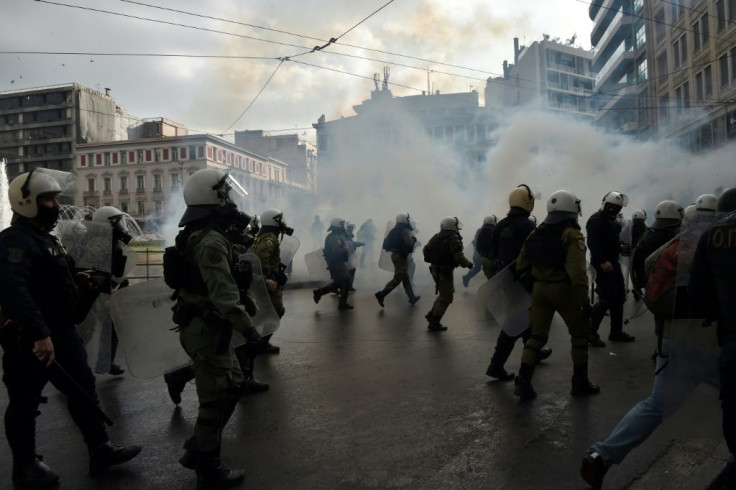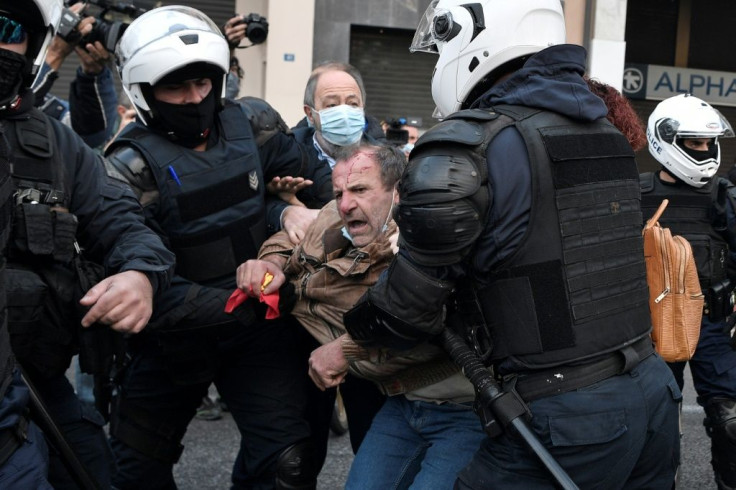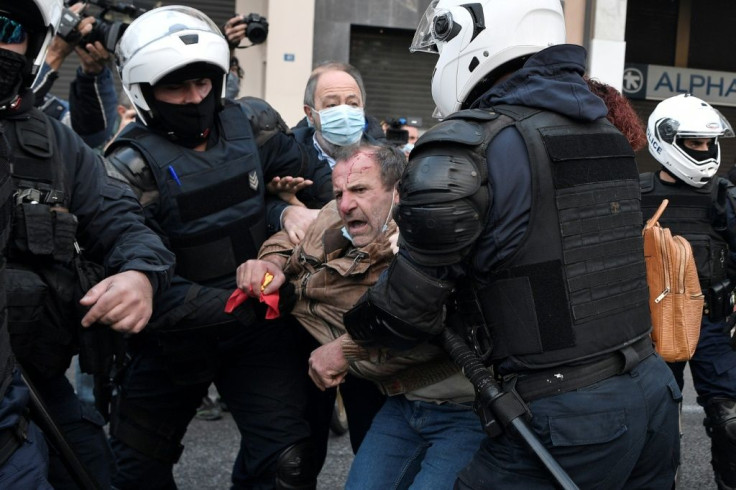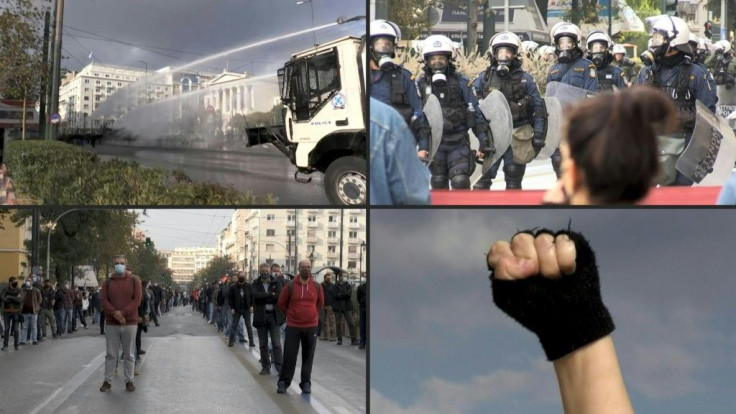Greek Protesters Clash With Police After Defying Virus Ban
Greek police used tear gas, stun grenades and water cannon in Athens on Tuesday to break up a demonstration to commemorate a 1973 student uprising against the military junta that was banned because of the pandemic.
November 17 is a treasured anniversary for many Greeks, recalling a crackdown that killed 24, including many students of the Athens Polytechnic.

The bloodbath was generally considered to have broken the junta's grip on power and speeded the restoration of democracy, and last year's commemorations drew crowds totalling more than 30,000 people in major cities.
But this year Prime Minister Kyriakos Mitsotakis' conservative government banned the public demonstrations as Greece faces mounting coronavirus cases.

This year, "protecting public health and solidarity with our fellow citizens, especially young people squeezed by the economic crisis, is the priority," Mitsotakis said Tuesday.
Police said around 1,500 people defied the ban, adding that they were backers of the KKE communist party and small left-wing party Antarsya.
Large numbers of riot police were already deployed.

An AFP photographer saw that most of the demonstrators were wearing masks.
One communist MP was injured and around 100 demonstrators arrested, police said.

KKE secretary-general Dimitris Koutsoubas said officers had "attacked" the MP.
Alexis Charitsis, spokesman for the main Syriza opposition party, agreed that "police attacked and provoked a peaceful demonstration", calling for "all the arrested people to be freed".
Most years, tens of thousands of largely left-wing demonstrators march through Athens to end up at the embassy of the US, which backed the Greek military dictatorship during the Cold War.
But this year's ban stoked anger among KKE communists, the radical left party under former prime minister Alexis Tsipras and former finance minister Yanis Varoufakis' MeRA25 movement.
All three rejected a government call for a simple gathering at the monument to the bloody repression of the student movement by the police and army.
Police turned out early to guard public buildings and around 200 demonstrators who gathered near the US embassy quickly dispersed, a police source said.
By evening, Athens was again calm, with police still on duty and 12 metro stations closed to hinder new gatherings.
After laying a wreath at the monument to the uprising, President Katerina Sakellaropoulou had early Tuesday told Greeks that "democracy is a regime of freedom but also responsibility".
"Getting over our individuality for the common good, public health and solidarity is all of our struggle."
© Copyright AFP 2024. All rights reserved.





















